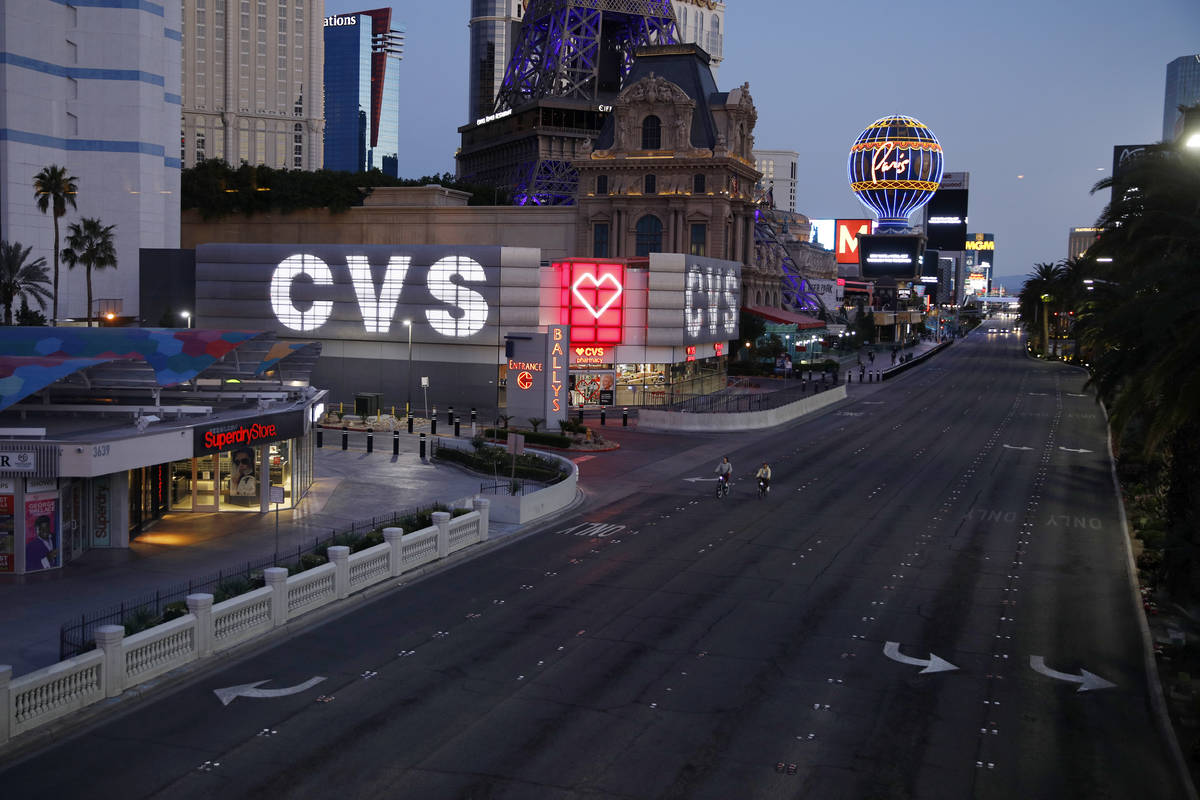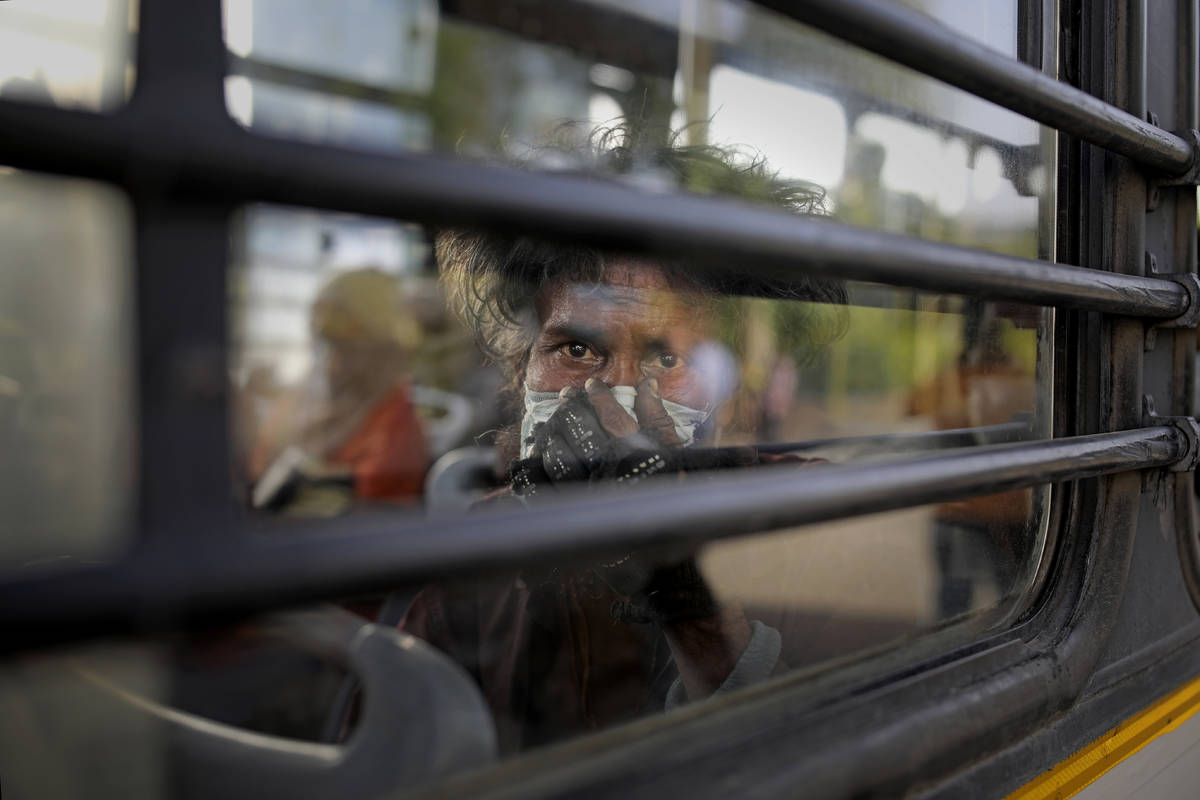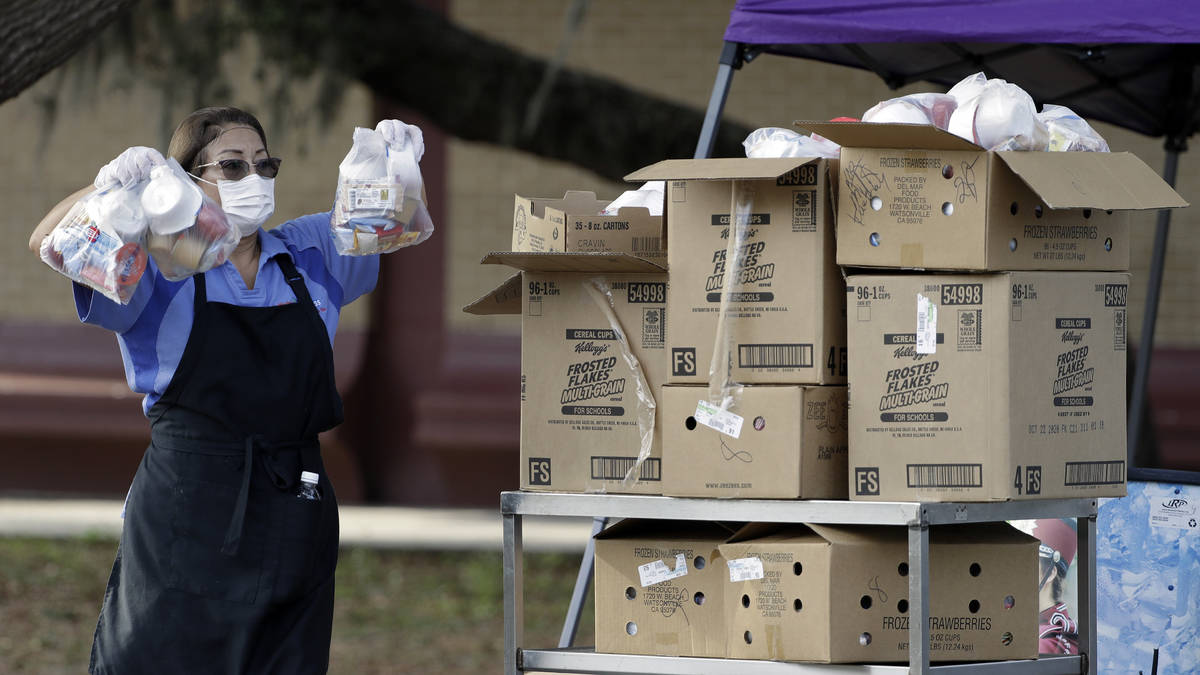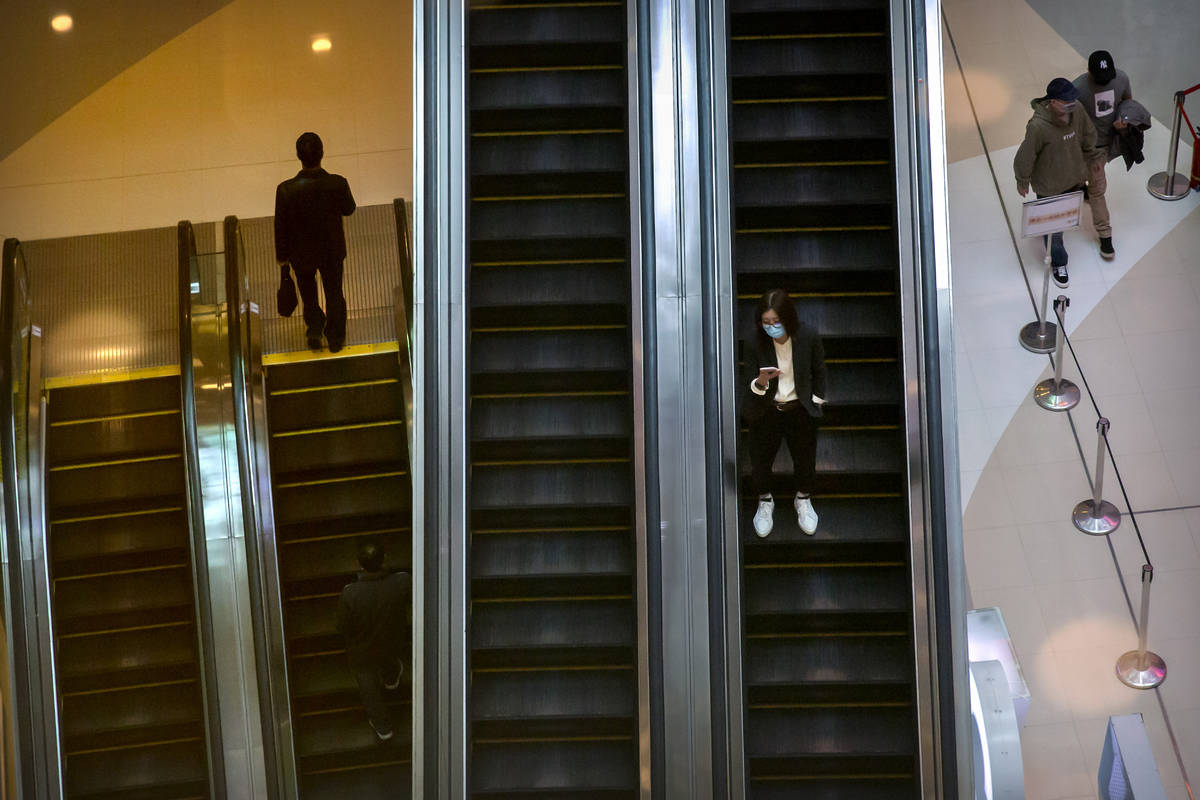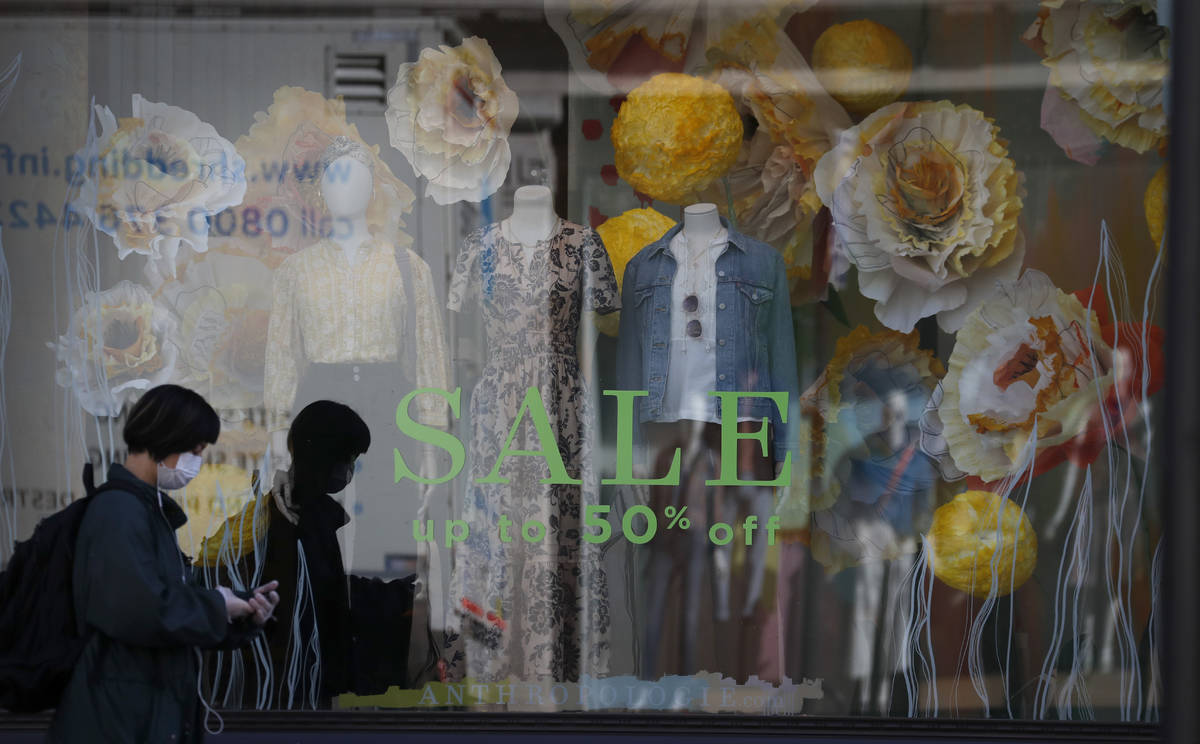Relief checks begin arriving as US economic damage piles up
WASHINGTON — Government relief checks began arriving in Americans’ bank accounts as the economic damage to the U.S. from the coronavirus piled up Wednesday and sluggish sales at reopened stores in Europe and China made it clear that business won’t necessarily bounce right back when the crisis eases.
With lockdowns and other restrictions bringing factories to a shuddering halt, American industrial output shriveled in March, registering its biggest decline since the U.S. demobilized in 1946 at the end of World War II. And retail sales fell by an unprecedented 8.7%, with April expected to be far worse.
The world’s biggest economy this week began issuing one-time payments to tens of millions of people as part of its $2.2 trillion coronavirus relief package, with adults receiving up to $1,200 each and $500 per child to help households make the rent or cover other bills. The checks will be directly deposited into bank accounts or mailed to households, depending on how they filed their tax returns in the past.
“Woke up to our Stimulus check in the bank!” Darla Shepherd of Bledsoe in Harlan County, Kentucky, posted on Facebook. “Thank you Mr. President Trump!”
Shepherd, 38, a health worker in the Appalachian coal-mining community, and her husband, Brandon, 44, are both working. But he was laid off from his quarry job the entire month of February, and his wife said in an interview that the payout would help them get caught up on bills.
Trump’s name on checks
“We’re your typical America family. We live payday to payday,” said Shepherd, who has a 9-year-old son. “It’s a blessing. It means a lot.”
In an unprecedented move, President Donald Trump’s name will be printed on the checks. Two administration officials, speaking on condition of anonymity because they were not authorized to discuss the matter, said the checks would not be delayed because of the decision.
Meanwhile, the first steps in lifting the economically crippling restrictions in other parts of the world are running into resistance, with shoppers and other customers staying away from the reopened businesses and workers afraid the newly restored freedoms could put their health at risk.
In China, millions are still wary of spending much or even going out. Some cities have resorted to handing out shopping vouchers and trying to reassure consumers by showing officials in state media eating in restaurants.
“I put off plans to change cars and spend almost nothing on eating out or entertainment,” said Zhang Hu, a truck salesman in Zhengzhou who has gone back to work but has seen his income plummet because few people are looking to buy 20-ton rigs. “I have no idea when the situation will turn better.”
In Austria, Marie Froehlich, who owns a clothing store in downtown Vienna, said her staff was happy to get back to work after weeks of being cooped up at home. But with her business dependent largely on tourism, which has dried up amid the travel restrictions, she expects it will take months to return to normal.
“Until then, we are in crisis mode,” she said.
The scene was similar in hard-hit Italy, where the streets of Rome were largely deserted despite an easing of restrictions this week that allowed some stores to reopen.
129K dead worldwide
Worldwide, deaths have topped 129,000 and confirmed infections have surpassed 2 million, according to the tally kept by Johns Hopkins University. The figures understate the true size of the crisis, in part because of limited testing, different ways of counting the dead, and concealment by some governments
The U.S. has reported more than 26,000 deaths — the highest in the world — and over 600,000 confirmed infections, by Johns Hopkins’ count. Still, the nightmare scenarios projecting a far greater number of deaths and hospitalizations have not come to pass, raising hopes from coast to coast.
In other developments
— An investigation by The Associated Press found that six days of delays by China in alerting the public to the growing dangers of the virus in mid-January set the stage for the global disaster.
— Millions of South Korean voters wore masks and maintained social distancing as they voted in parliamentary elections, with turnout surprisingly high. The government resisted calls to postpone the balloting, seen as a midterm referendum on President Moon Jae-in.
— The death toll in Iran is probably almost twice the officially reported figure of almost 4,800 as a result of undercounting and because not everyone with breathing problems has been tested for the virus, a parliamentary report said. The explosive allegation was buried in a footnote in the 46-page document.
Around the world, the economic damage from the effort to “flatten the curve” of infections has mounted alarmingly.
Grocery sales rise 26%
Signifying a huge shift in consumer behavior, grocery store sales in the U.S. jumped nearly 26% as Americans stocked up on food and consumer goods to ride out the crisis, while auto sales plummeted by one-quarter and clothing store sales slid by more than half, the government reported. The category that mostly includes online shopping rose more than 3%.
“With clear signs of panic buying of necessities and the fact that lockdowns were introduced only around the middle of the month means that far worse is to come in April and the second quarter more generally,” said Michael Pearce, an economist at the consulting firm Capital Economics.
U.S. manufacturing output dropped 6.3% last month, led by plunging production at auto factories, which have shut down entirely.
President Trump has been anxious to lift stay-at-home orders and business shutdowns in the U.S. But those aspirations continue to meet stiff resistance on the state and local levels.
On Wednesday, a day after New York City added nearly 4,000 deaths to its toll, in part by counting people who were believed to have the virus but were never tested before they died, liberal Democrat Mayor Bill de Blasio told Fox News that he intends to move cautiously.
“In this case, I’ll call myself a conservative,” said de Blasio, whose city’s death toll now tops 10,000. “Look, I want to see people back to work as much as anyone. I feel it urgently. But we’ve got to secure the health and safety first of all New Yorkers and, obviously, all Americans. … We get one chance to get it right.”
EU lays out 16-page road map
The European Union echoed such concerns even as it published a 16-page road map plotting a united course out of the crisis for the 27 nations. The EU warned that “any level of gradual relaxation of the confinement will unavoidably lead to a corresponding increase in new cases.”
Foreign leaders, meanwhile, rushed to the defense of the World Health Organization after Trump vowed to cut off payments to the U.N. agency for not sounding the alarm over the virus sooner.
EU foreign policy chief Josep Borrell said the WHO is now “needed more than ever” to combat the outbreak.
“Only by joining forces can we overcome this crisis that knows no borders,” he said.



